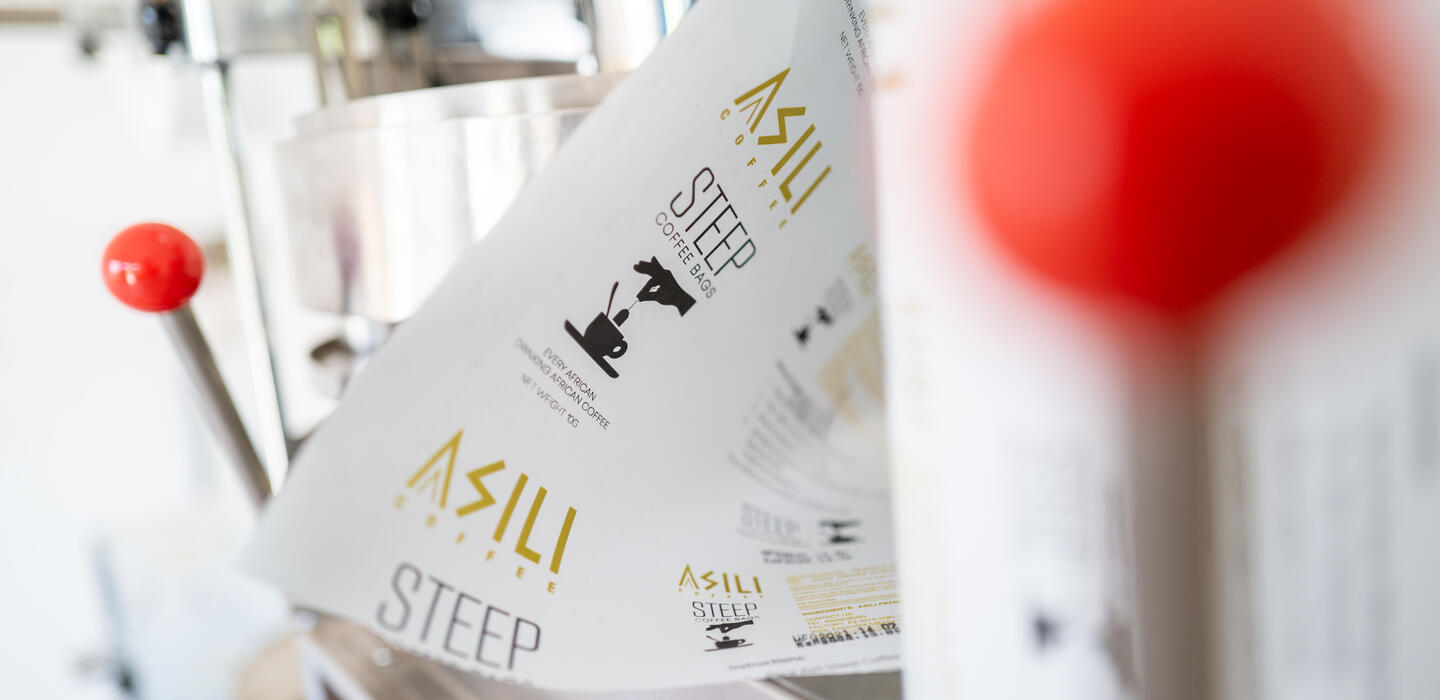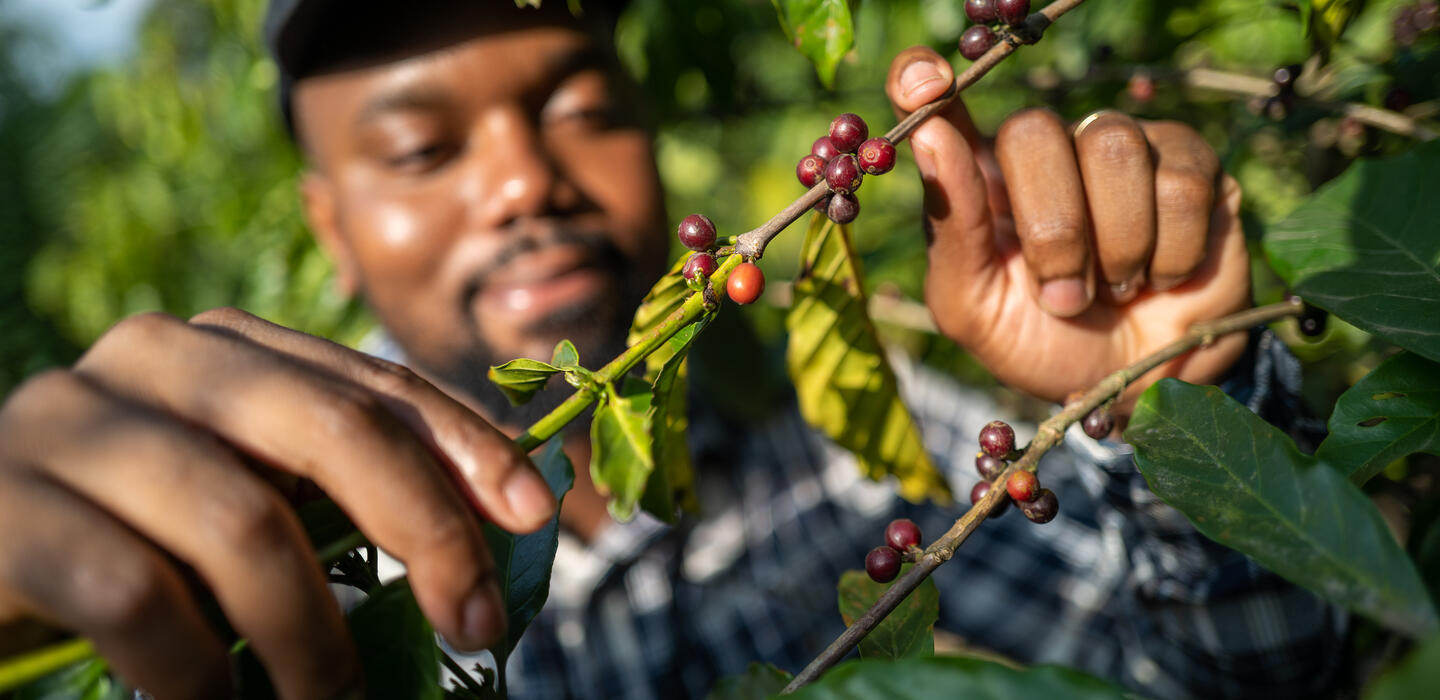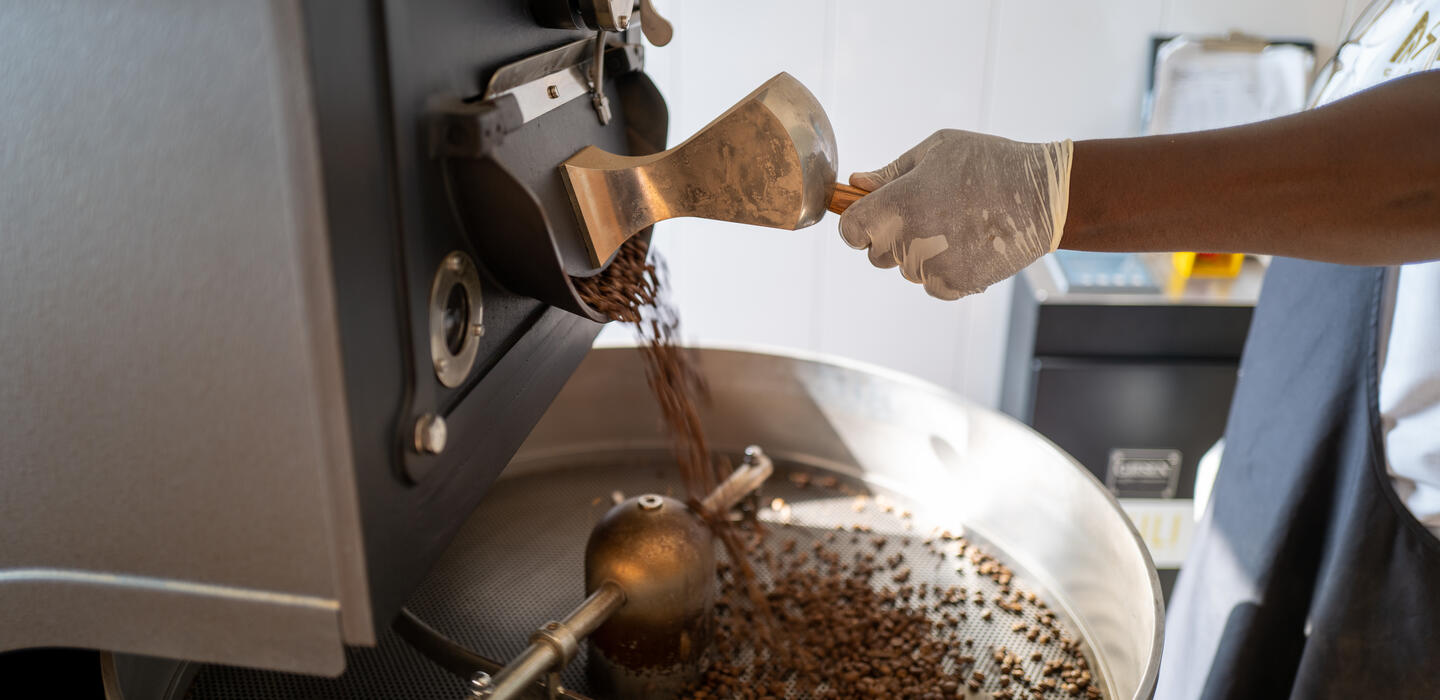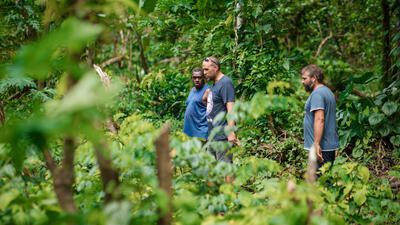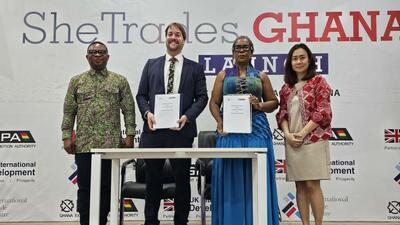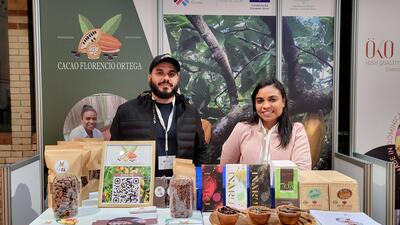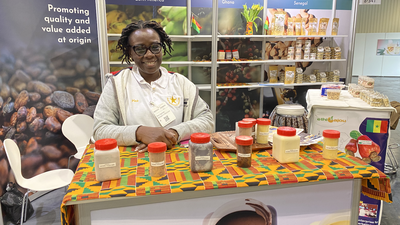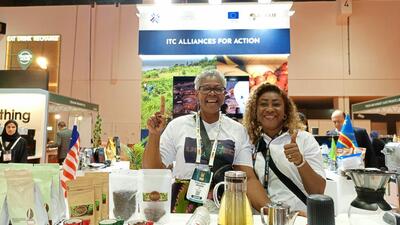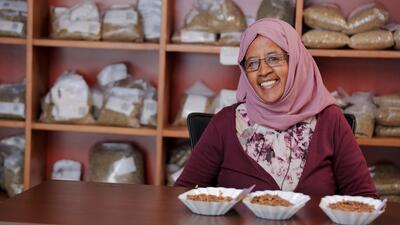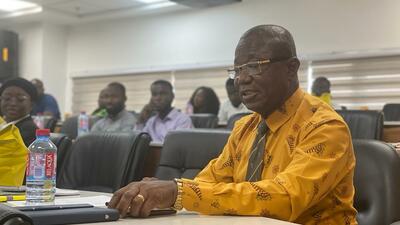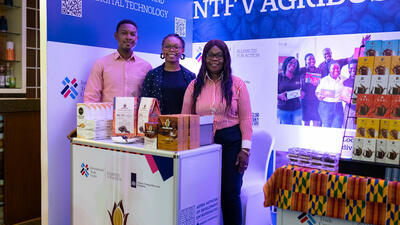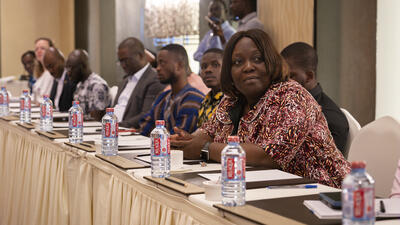
Ghana’s mission to have every African drinking coffee
ITC is supporting coffee growers and processors in West Africa, helping them reach new markets and grow their operations.
If you check your local coffee shop’s menu, it’s unlikely that you’ll see Ghana as a featured origin. While other African countries like Ethiopia and Kenya have achieved a high status in the world of specialty coffee, Ghana isn’t quite there yet.
Today, Robusta coffee beans account for 30% - 40% of global coffee production. Three of the world’s top 10 Robusta-producing countries are in Africa. But many African countries with a history of production have fallen off the map in the last 40 years.
Once a thriving coffee producer, Ghana’s coffee industry has suffered a dry spell over the last 20 years. Systemic challenges like poor infrastructure, low access to finance, low access to technical resources, and the triple effects of climate change, volatile prices and COVID-19 have held them back.
But we are now seeing African countries rising to the challenge, reactivating their production to diversify their exports and improve their livelihoods. A recent set of government initiatives, combined with a new wave of investment and some innovative entrepreneurs is changing the narrative.
Bringing fine coffee to African palates
Emerging coffee brands are exploring sustainable farming methods and pioneering social impact schemes to produce fine Robusta. While this species of coffee isn’t usually considered specialty, some Ghanian producers are confident they can produce high-quality Robusta to help revitalize the nation’s coffee industry.
Asili Coffee is the brainchild of John Nana Addo Francois. The coffee growing and roasting operation in Ghana’s Akuapem region seeks to improve lives with better incomes in rural Ghana.
"Every African drinking African coffee" is the brand's tagline - a testament to John's desire to democratize access to good coffee.
Starting off with seed funding and some of his own savings, John led market research across Ghana, Tanzania and even as far as Indonesia. Armed with this knowledge, he learned the art of roasting and set up a coffee processing operation. He launched his first product, Asili premium, a blend of Africa’s best Arabicas which he hand selects.
But he soon noticed that his own community couldn’t afford the specialty coffee they grew. So he launched a no-frills, easy to brew product. Asili Steep puts fine Ghanaian Robusta coffee in tea bags. All you need is hot water.
A mission to give back to coffee growers
Committed to his local community of coffee growers, he worked with the government to initiate the first seedling disbursement in the Akuapem area in 2018. From there, the Akuapem Coffee Growers Initiative was born, designed to collectively boost Ghana's abandoned coffee production.
“I want to see Ghanaian hills drowning in coffee in the next ten years. We need to make coffee production profitable," says John.
Asili is one of the brands supported by ITC’s Alliances for Action sustainable agribusiness initiative under the ACP Business-Friendly programme funded by the EU and the Organisation of African, Caribbean and Pacific States (OACPS). In addition to trainings on post-harvest techniques and coffee processing, ITC also fosters market linkages that can help these businesses flourish.
“This partnership allows us to meet other boisterous African companies and to create partnerships for trade. I want to flood Africa with these teabag machines so all Africans can be drinking coffee,” says John.
The programme helps bridge a gap between small and large companies and offers access to research and development and business and trade knowledge that is crucial to company development.
John next plans to extend his value chain to larger players that he’s already talking to. This will help drag production numbers up, boost job creation and allow him to further expand his roasting operation.
About the project
The ACP Business-Friendly Programme is funded by the European Union and the Organisation of African, Caribbean and Pacific States (OACPS) and jointly implemented by ITC’s Alliances for Action, the World Bank and UNIDO.
It seeks to improve the ability of agribusiness firms in ACP countries to compete, grow and prosper in domestic, regional and international markets. Through the Alliances for Action approach, it promotes inclusive and sustainable agricultural value chains that value all stakeholders from farm to shelf.
Alliances for Action is an ITC initiative that seeks to transform food systems through producer partnerships that cultivate ethical, climate- smart, sustainable agricultural value chains.




